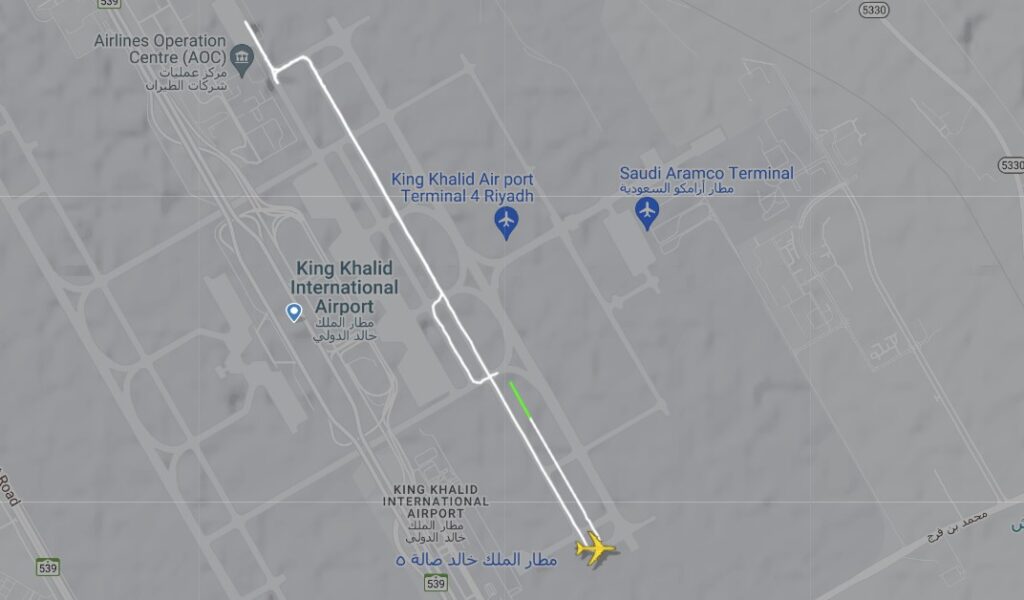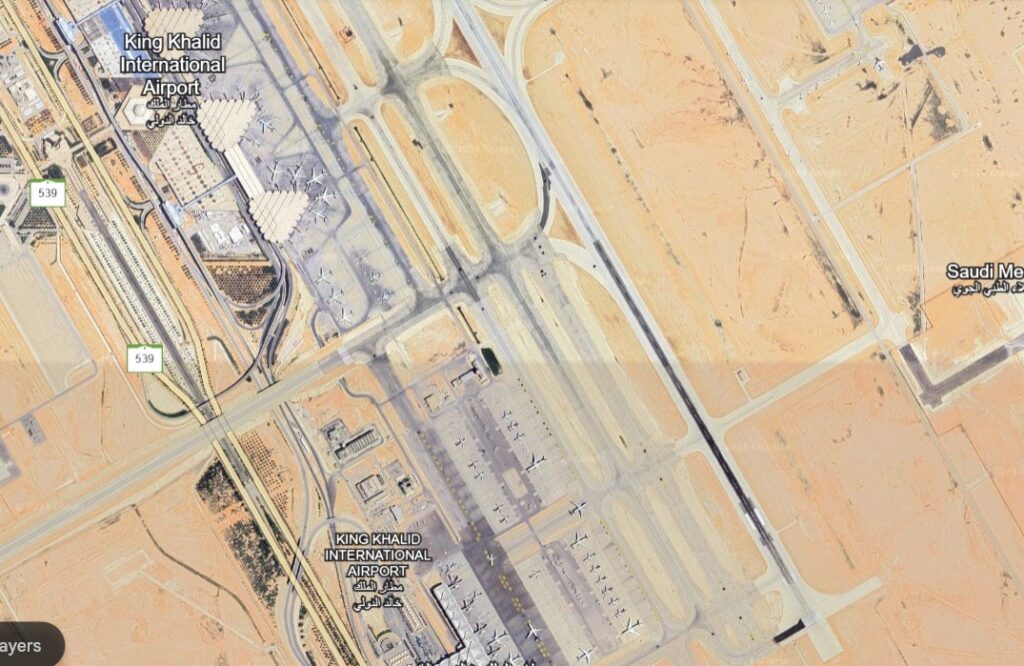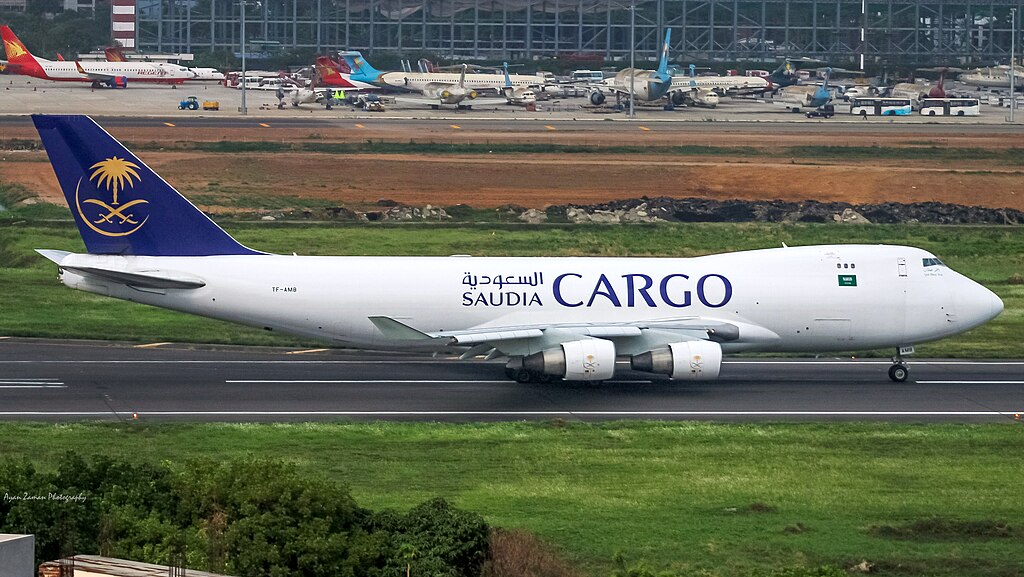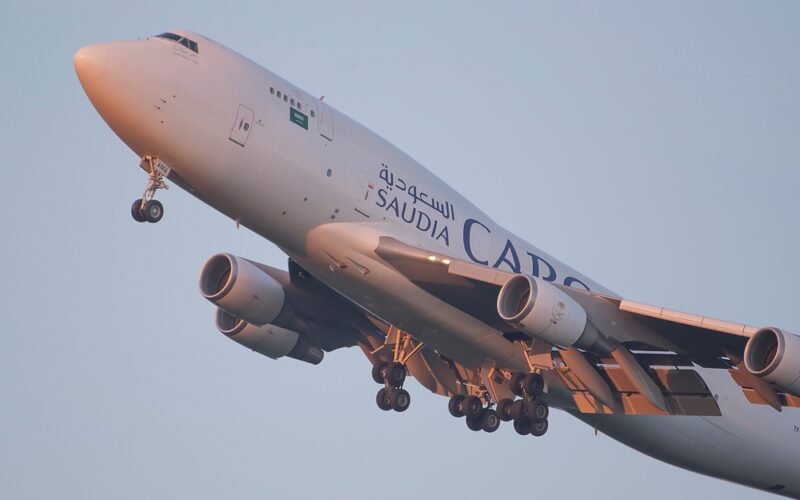A Boeing 747 freighter aborted its takeoff run at Riyadh Airport after realizing it was taking off from a taxiway instead of its assigned runway. An investigation is now underway to determine how the event occurred and how similar incidents might be avoided in the future.
On April 22, 2024, an Air Atlanta Europe Malta Boeing 747-400 freighter operating on behalf of Saudi Arabian Airlines was scheduled to depart from Riyadh King Khalid International Airport (RUH) and fly to Nairobi (NBO) in Kenya. Data from Flightradar24 shows that the aircraft taxied from the cargo apron located at the northwestern end of the airfield at 00:28 before taxying down to the taxiway leading to runway 33R. This runway has a total length of 13,796 feet (4,205 meters).
However, having turned left towards the runway, rather than continuing down to the holding point for the active runway, the crew prematurely turned left again onto the end of taxiway K. This taxiway has a total length of just 4,880 feet (1,490 meters) – around a third of the length of runway 33R alongside it.

At 00:37 local time, the 747 freighter was cleared to take off from runway 33R by Riyadh air traffic controllers. However, for reasons yet to be determined, the crew of the Air Atlanta cargo plane began their takeoff roll from taxiway K.
The aircraft accelerated down taxiway K, seemingly intending to take off. However, with the aircraft having reached a ground speed of 110 knots (126 mph/202 kph) and with the end of the taxiway fast approaching, the crew of the cargo plane suddenly realized their mistake and aborted the takeoff roll.
According to a report of the incident published by Aviation Herald, the aircraft managed to come to a stop a distance of 4,780 feet (1,450 meters) from the start of taxiway K. Simple mathematics determines that the aircraft came to a halt with just 100 feet (30 meters) of tarmac ahead of it.

Meteorological reports from the airport showed that at the time of the incident, the outside air temperature at Riyadh Airport was around 30 degrees Celsius (86 degrees Fahrenheit). An abrupt stop for such a heavy aircraft in such high temperatures would have undoubtedly led to overheated brakes which could also have resulted in damage to the landing gear assembly.
Having returned to the cargo apron following the incident, the aircraft’s flight to Nairobi was subsequently canceled, and the aircraft then spent the next two days in the hands of Air Atlanta engineers before finally being dispatched to Hong Kong on April 23, 2024.

Saudi Arabia’s Aviation Investigation Bureau is now looking into this incident to determine the cause of any errors that were made which could have led to the flawed take-off attempt. The investigators will be keen to understand how the crew managed to mistake a relatively short taxiway for a much longer runway at the airport.
Additionally, checks by the crew themselves as well as systems onboard the flight deck should have alerted the crew of their mistake, However, it would appear that these warnings were overlooked.
Further details
The aircraft involved in the incident was a 29-year-old 747-400 freighter with the registration 9H-AKF. This aircraft first flew in December 1994 and was originally delivered to EVA Air in Taiwan as a passenger variant. It was converted into a freighter in August 2007 and was later acquired by Air Atlanta in March 2019. The aircraft was transferred from parent company Air Atlanta Icelandic to Air Atlanta Europe Malta in October 2022.
Notwithstanding the seriousness of this incident and the potential it held to end very differently, Riyadh Airport witnessed a very similar incident back in 2018. On that occasion, a Jet Airways Boeing 737 also attempted to take off from taxiway K after being cleared to take off from runway 33R. In this earlier incident, the aircraft failed to stop before reaching the end of the taxiway, eventually coming to a halt on the soft ground beyond the end of the tarmac surface of taxiway K.


4 comments
Sometimes these days I wonder how and why these sort of incidents happen.
The markings are insufficient for 33R. There should
warnings to prevent this sort of excursion. I too, very
nearly took off on the taxiway about 7 years back.
As a veteran b 747 captain I think airport lighting system should blame for such incident B747 high cockpits needs sufficient marking and lighting. Plus pilot fatigue due not enough rest time.
There should be red lights blocking entry into taxiway K prior to holding point RW33R. Also the pilots are in a bit hurry to takeoff because they don’t want to waste fuel on ground holding unnecessarily. Thus normally a rolling take off is preferred which leads to RWY excursions.